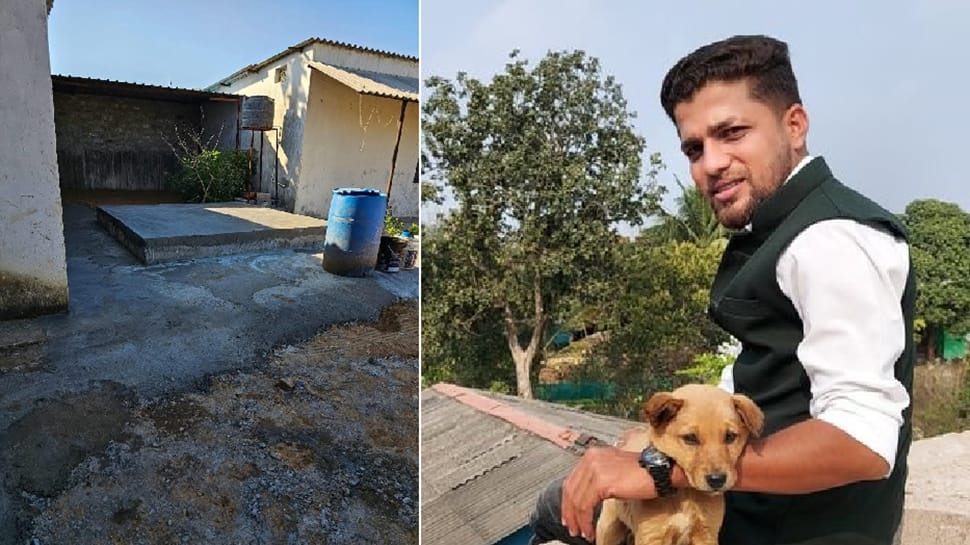 |
|
The tragic death of Mukesh Chandrakar, a young and dedicated YouTuber journalist from Bijapur, Chhattisgarh, has sent shockwaves through India. His body was discovered in the septic tank of Suresh Chandrakar, a local contractor, days after Mukesh had published a report exposing alleged corruption in the contractor's work. This incident highlights the dangerous realities faced by investigative journalists, particularly those working in regions with limited resources and a culture of impunity. The discovery underscores the urgent need for greater protection for journalists and a commitment to holding those responsible for violence against them accountable. The initial report of Mukesh's disappearance on January 1st, 2025, quickly turned into a murder investigation as police traced his last known location to the contractor's property. The newly constructed septic tank, with its freshly cast cover, immediately raised suspicion, leading to the grim discovery of Mukesh's decomposing body. The identification was confirmed by family members recognizing his clothing.
The swift response of the police, assembling a team to investigate the disappearance, suggests a degree of professionalism in the initial stages of the case. Tracing Mukesh's phone location to the contractor's premises demonstrates effective use of technology in the investigation. However, the brutal nature of the crime and the fact that the body was found hidden in a septic tank indicates a calculated and pre-meditated act of violence. The police's statement that the contractor is the primary suspect, while the exact involvement is yet to be determined, suggests a focused investigation, although the investigation is ongoing with several suspects being questioned. This highlights the complexities of investigating such crimes, where evidence needs careful collection and analysis to secure a conviction. The statement of the Chief Minister, Vishnu Deo Sai, expressing sorrow and ordering a thorough investigation is a crucial step in acknowledging the seriousness of the crime and demonstrating a commitment to justice for Mukesh Chandrakar. His assurance that the culprits will not be spared underscores the importance of sending a clear message that violence against journalists is unacceptable.
Mukesh Chandrakar's work focused on critical issues such as healthcare and the violence prevalent in Naxal-affected regions. His reports from Naxal camps and remote villages demonstrated his courage and commitment to bringing vital information to the public. This speaks volumes about his dedication to journalism, despite the inherent risks. The fact that his last report focused on irregularities in the construction of a road between Gangloor and Nelsonar in Bijapur directly connects his death to his investigative work. This strong correlation between his reporting and his murder further highlights the deadly consequences that investigative journalism can have in areas with high levels of corruption and impunity. The deployment of a police team to Delhi suggests that the investigation is far-reaching, possibly exploring connections beyond the immediate vicinity of Bijapur. The statement of IG Sundarraj P, emphasizing the prompt mobilization of teams upon receiving the missing person report, further demonstrates the efforts being undertaken. This case serves as a harsh reminder of the challenges faced by journalists, particularly those investigating corruption in high-stakes environments. The pressure to uncover the truth often comes at a significant personal cost. The ongoing interrogation of over half a dozen suspects, along with the additional efforts by the police, demonstrates that the investigation is moving forward with significant resources dedicated to solving the crime.
The murder of Mukesh Chandrakar is not an isolated incident. It is part of a larger pattern of violence against journalists, often targeting those who expose corruption and powerful individuals. The lack of effective protection mechanisms for journalists in many parts of the world contributes to this ongoing problem. This case should serve as a wake-up call for governments and law enforcement agencies to take concrete steps to ensure the safety and security of journalists. This includes providing adequate protection, enacting stricter laws to punish those who attack journalists, and promoting a culture of freedom of the press. International organizations and media watchdogs should also play a critical role in monitoring these cases and advocating for justice. The outpouring of grief and support following Mukesh’s death serves as a testament to his dedication and the value of his work. His legacy should not be forgotten, and his murder should serve as a catalyst for greater protection and support for investigative journalists everywhere. The fight for justice must continue, not just for Mukesh, but for all those who risk their lives to bring truth to light. The details surrounding the investigation, including the questioning of multiple suspects and the extended reach of the police investigation into Delhi, point to a concerted effort to uncover the truth behind Mukesh's murder. The international attention this case has drawn will likely exert pressure on authorities to ensure a thorough and transparent investigation and to bring those responsible to justice.
